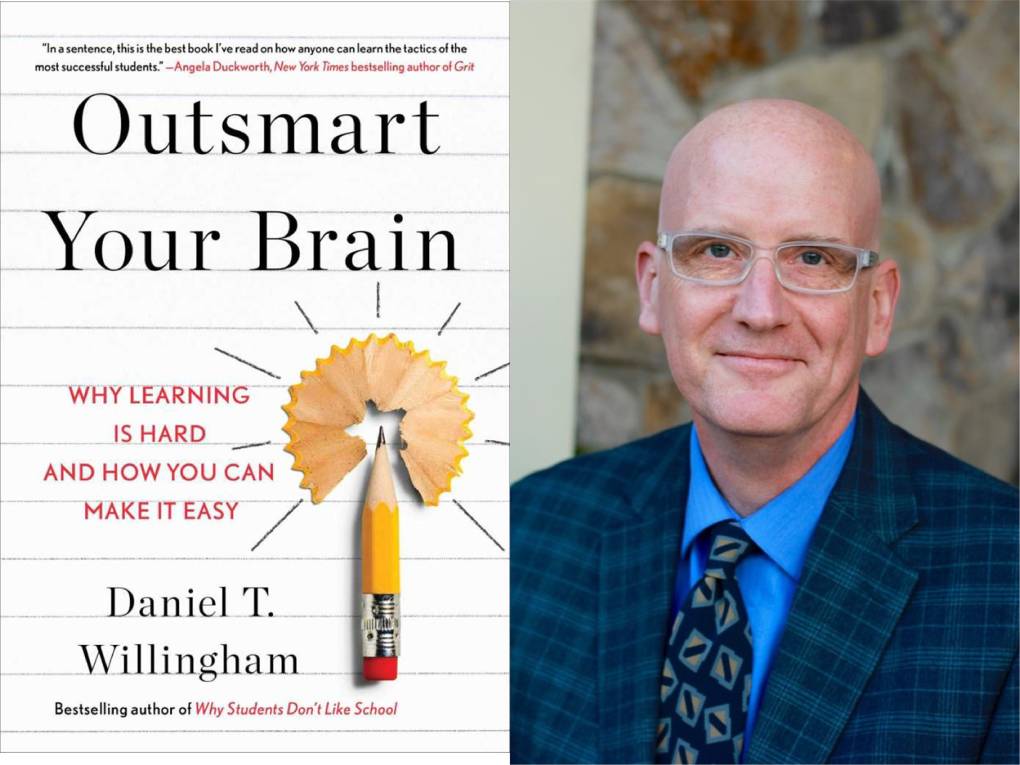Daniel Willingham is a University of Virginia psychologist who frequently engages in pop culture battles armed with academic research. He has made it a personal crusade to persuade teachers that the idea of learning styles is a myth. (Research evidence shows that we all learn through a variety of ways: visually, aurally and kinesthetically.) For years, he has complained that teachers aren’t heeding research about reading instruction, and that many educators are misguided when it comes to teaching critical thinking. Now, Willingham has shifted his focus from teachers to students. In his new book, “Outsmart Your Brain: Why Learning is Hard and How You Can Make it Easy,” he points out all the wrong ways that students do homework, take notes in class or study for tests. (This interview has been edited and condensed for clarity.)
Q: You have almost 100 research-based tips on how to be a better student and almost all of them are just the opposite of what I did when I was in school. Don’t read over your notes to study for a test. Don’t use a highlighter when reading class assignments. Don’t combat procrastination through to-do lists. I’ve been studying wrong my whole life. Why is effective studying so counterintuitive?
A: Students are doing things that feel really effective at the moment. It’s not like these strategies are completely fruitless. They’ve made it to college with them. But they don’t know the counterfactual; they don’t know what would happen if they engaged in other strategies.
Q: It’s interesting that students may feel something is working even when it isn’t.
A: Right! The most dramatic example, which I write about in the book, is reading over your notes. It’s the most common study strategy and it’s bad in two ways. It’s not very good for memory. But it also increases this feeling of familiarity. And to me, probably the most surprising idea in the book is that you can think you know things. A strong feeling of familiarity leads people to judge that they know something. But it’s not the kind of knowing that’s going to be expected in the classroom. On a test, you need to connect information; you need to be able to explain it.
One of the best ways to study is to probe your memory. Create your own practice tests. Flashcards, I think, get a bad rap because there’s this idea that it’s just rote and it’s only going to be appropriate for learning vocabulary or something. But doing flashcards is essentially testing yourself so I think it’s a great idea. There’s no reason you can’t pose and answer conceptual questions in a flashcard format, including essay questions. This is getting you thinking about themes and connecting big ideas, and that’s going to be useful for studying.
Copyright 2023 NPR. To see more, visit https://www.npr.org




